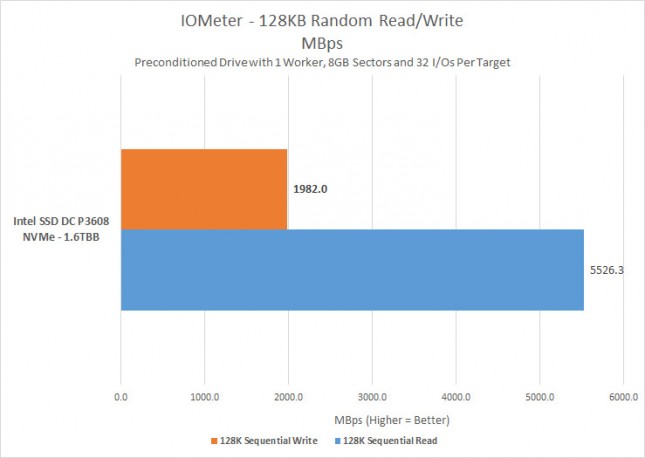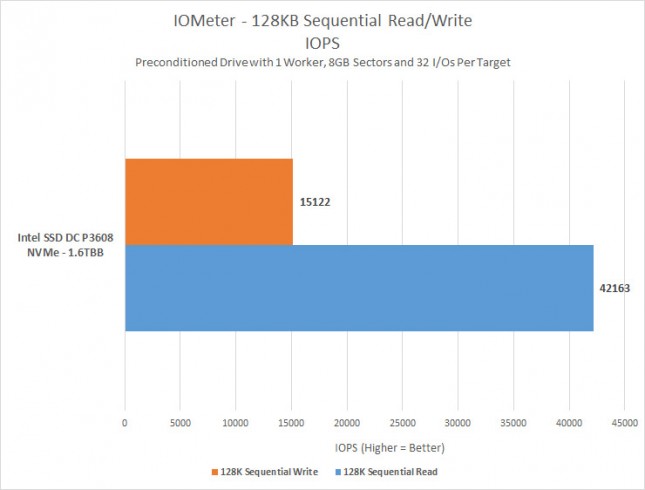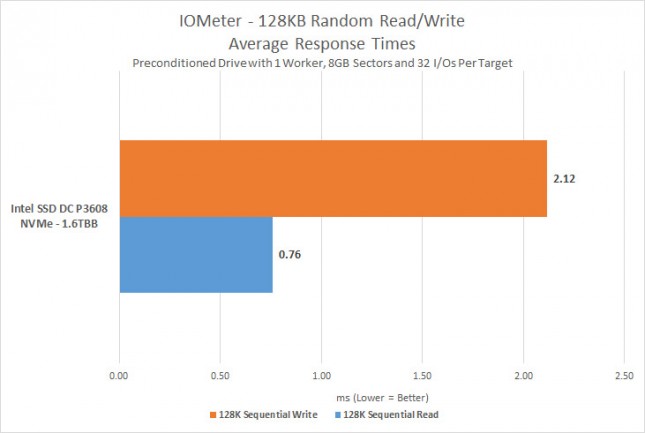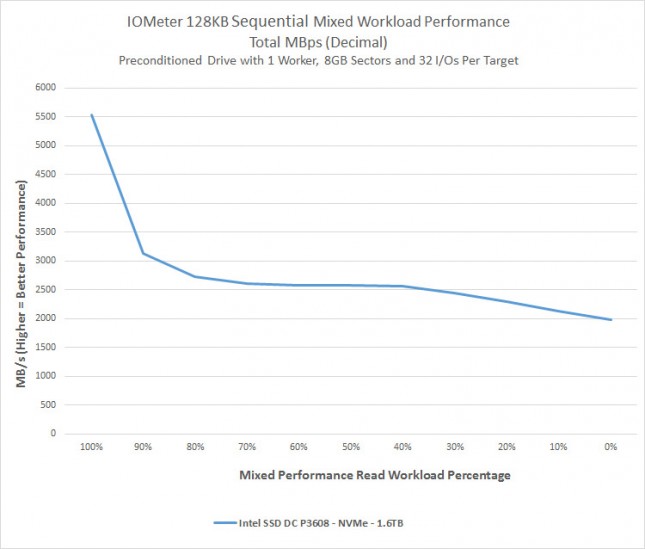Intel SSD DC P3608 1.6TB PCIe SSD Review
IOMeter Sequential Performance
Starting here in April 2015 Legit Reviews has brought ack synthetic IOMeter v1.1.0 testing to our high-end Solid-State Drive reviews as we feel that the canned benchmarks no longer show enough of the performance picture nor do they expose many of the heat issues that we are starting to encounter on M.2 PCIe SSDs. We start out testing each drive with IOMeter, but first we prepare the drive. This is done by using Parted Magic to complete a full Secure Erase each and every drive. Next we use IOMeter to prefill the drive by performing the industry standard 128KB, aligned, sequential write workload across the entire drive for a period of 20 minutes. Once the drive is conditioned we run our saved sequential test profile that runs our 128KB test for two minutes without any idle time in between the tests. The queue depth is set to 32 as we feel with NVMe drives starting to come out that we need to increase our IO depth.
The 128KB Sequential Read/Write test is done primarily to make sure the drives we are testing meet or surpass the manufacturer specifications for sequential Read/Write performance. The HyperX Savage 240GB SSD is rated at up to 560 MB/s sequential read and 530 MB/s sequential write. We were able to top our drive out at 562.2 MB/s read and 534.9 MB/s write, which is right about where Kingston said they should be.
For those that like to know the IOPS results you are looking at around 42,200 IOPS for the sequential read and 15,100 IOPS on the sequential write.
Having high IOPs per second is generally considered good, but you also look at the latency when interpreting the results. Just because the IOPs are high it might not mean that the data is being delivered at a reasonable latency and this could cause for a poor user experience. The DC P3608 1.6TB drive was found to have just 2.1 ms write and 0.8 ms read on the average response times, which is excellent!
IOMeter Mixed Performance
Our mixed performance test is conducted in the same manner as our sequential tests, but once the drive is conditioned we run our test profile to look at performance in various read/write states. We start the test with 100% reads and then add write data into the mix in 10% increments until we end up with no reads at all in the workload.
The Intel SSD DC P3608 1.6TB drive started off at over 5500 MB/s with 100% reads and quickly dropped down to roughly 2,600 MB/s on the 70/30 mixed read/write test. By the time the drive got to 100% write operations the performance was just below 2000 MB/s.
Let’s take a look at power and wrap this up!




